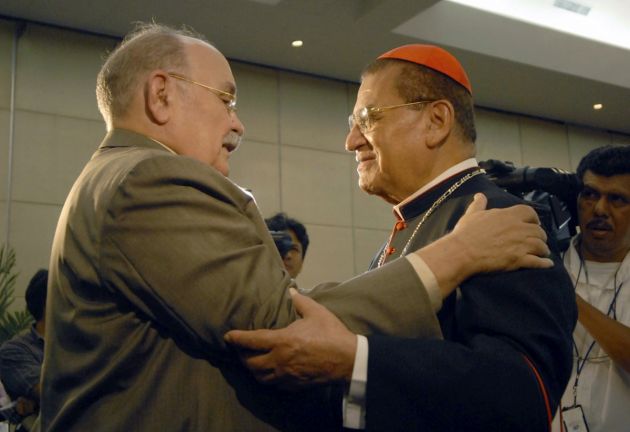Pope lifts ban on Nicaraguan priest suspended for joining revolutionaries

Pope Francis has lifted the suspension of Father Miguel D'Escoto, the Nicaraguan priest who was suspended due to his involvement in Nicaragua's revolutionary government in the Central American country's revolutionary government in the 1970s.
The 81-year-old priest wrote to the Vatican and expressed his desire to celebrate Mass again "before dying," Vatican Radio reported.
The Vatican said on August 4 that Pope Francis had agreed to lift the curb on the priest.
Los Angeles-born D'Escoto was the President of the United Nations General Assembly from September 2008 to September 2009.
He asked the priest's superior at the Maryknoll Fathers and Brothers, a Catholic missionary organization, to help reintroduce D'Escoto back into the ministry.
The Maryknoll Fathers and Brothers quoted the Vatican's letter, saying: "The Holy Father has given his benevolent assent that Father Miguel D'Escoto Brockmann be absolved from the canonical censure inflicted upon him."
The Maryknoll press statement said the Pope "entrusts him to the superior general of the institute (Maryknoll) for the purpose of accompanying him in the process of reintegration into the ministerial priesthood."
The letter announcing the lifting of the suspension was signed by Cardinal Fernando Filoni, prefect of the Congregation for the Evangelization of Peoples, Catholic News Service reported.
D'Escoto was a prominent figure in the church before supporting the socialist Sandinista National Liberation Front.
He founded Orbis Books, Maryknoll's theological publishing division, and he became an official with the Geneva-based World Council of Churches.
He joined the Sandinistas in the 1970s and helped overthrow the government of Anastasio Somoza.
D'Escoto was named foreign minister after the Sandinistas came to power in 1979.
His political involvement broke the Code of Canon Law which prohibits priests from holding partisan political offices.
Pope John Paul II suspended him in 1985 after failed attempts of the Vatican to convince him to resign. D'Escoto was suspended together with Jesuit Father Fernando Cardenal, the Sandinista education minister, and Trappist Father Ernesto Cardenal, the culture minister.
The Huffingtonpost recalled an interview of D'Escoto with America Magazine in 1985, expressing the priest's thoughts.
In the interview he said, "If you tell me that there is a revolution somewhere and the Church is against it, I will say, 'What else is new?'
"I mean, what would be newsworthy is to tell me that the Church is for it. So in Nicaragua the new thing is, and the question is: How come so much of the church is in favor of it [the revolution]?"
In the 1970s Pope Francis, then Jorge Bergoglio, also experienced the wrath of the dictatorship in Argentina.
But instead of joining a political movement, he reportedly worked from behind the scenes to provide shelter for the persecuted.
